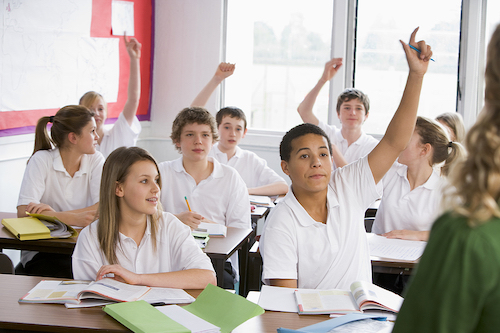 Middle school can be rough.
Middle school can be rough.
Now research has backed up that if you’re not attractive or athletic in middle school, it can be a nightmare.
Researchers from Florida Atlantic university have found that young people who aren’t attractive or athletic see their popularity decline as the school year progresses.
“Children who are not attractive and children who are not athletic become increasingly unpopular. Growing marginalization, in turn, precipitates loneliness and alcohol misuse. There were no differences between boys and girls. Unattractiveness harms the popularity of boys as much as it does that of girls unathleticism drives declining popularity among girls, just as it does among boys,” Brett Laursen, PhD, senior author of the study and a professor of psychology at Florida Atlantic University told Theravive.
“A study from the 1960s, by a famous sociologist, identified a distinct adolescent culture in American schools. In his book the Adolescent Society, Coleman noted that attractive girls and athletic boys were the most influential students in the school. Their values held the most sway among peers, not those who performed well academically. We wondered if it was still the case that life is hard for students who are not athletic and those who are not attractive -- and whether there were still differences between boys and girls in traits that left them at a disadvantage in the peer group.”
As part of the study, 580 middle school students aged 10 to 13 were asked to identify their peers who fit the descriptors of “athletic”, “attractive” and “unpopular”.
The students were also asked how often they felt lonely and how often they drank alcohol to the stage that they were intoxicated.
The researchers found that attractiveness and athleticism were traits that are highlight valued among young people, and those who lack these traits face difficulties.
They also found that the social penalty faced by students with low levels of attractiveness or athleticism were not gender specific. Both boys and girls experienced problems if they lacked athletic prowess or good looks.
In the past, it had been assumed that being unattractive was particularly problematic for females and lacking athleticism was problematic for males. But the study disproves that stereotype.
Those who are seen to have the traits of attractiveness and athleticism received the benefits of popularity.
“Every group has a pecking order, a dominance hierarchy. Those at the top have the most status and control the most resources. In schools, popular youth are at the top of the food chain. Attractiveness and athleticism are traits that are valued by the peer group, meaning that those with these traits are the most popular, which gives them their pick of activities and companions,” Laursen said.
For youth who don’t have these highly valued traits, their unpopularity grows, along with their problems.
The researchers say that young people who aren’t attractive or athletic become more and more unpopular and marginalized. This can then lead to loneliness, misuse of alcohol and behavior problems.
They found that two thirds of those who drank to levels of intoxication during the school year were above average in their level of unpopularity.
The results of the study were found in a sample of youth from a metropolitan area of Florida, as well as a sample of youth in a small town in Lithuania.
“Despite public messaging about body acceptance, the adolescent social world is often still quite unforgiving,” Laursen said.
“Youth who are not attractive and those who are not athletic must endure the indignities of low status and powerlessness to remain attached to the peer group. These experiences eventually takes a toll on individual well-being.”
Elizabeth Pratt is a medical journalist and producer. Her work has appeared on Healthline, The Huffington Post, Fox News, The Australian Broadcasting Corporation, The Sydney Morning Herald, News.com.au, Escape, The Cusp and Skyscanner. You can read more of her articles here. Or learn more about Elizabeth and contact her via her LinkedIn and Twitter profiles.